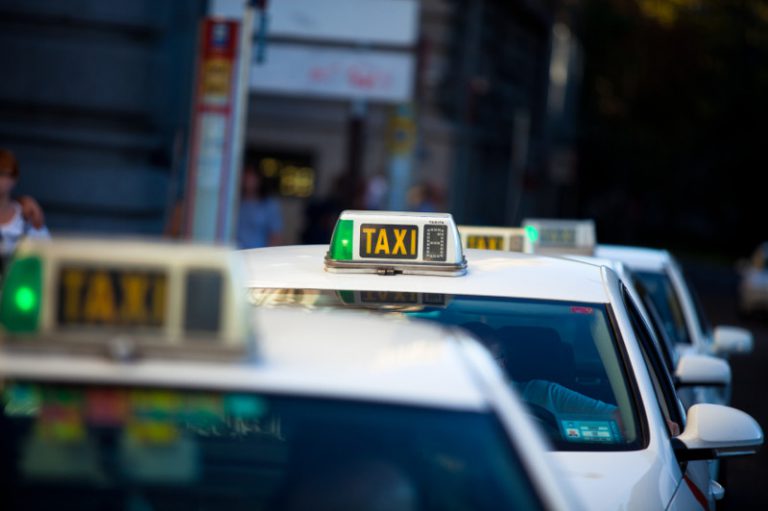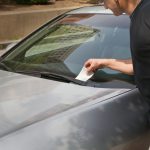Last updated on September 13th, 2019 at 09:09 am.
We often take them for granted, but if you have ever lived in an area that’s short of local Spanish taxis you will recognise just what an underestimated resource they can be.
In Spain, obtaining a licence to run an official taxi is expensive and it stipulates a range of conditions and requirements that make the licence hard to come by and keep. In the current, economic climate it is not surprising that local Spanish taxis are finding it a struggle at the moment. There are several different reasons:
- Unofficial ‘taxis’ taking airport run trade
- Tension between taxis based in different areas
- The onset of Uber
Steve does airport runs
Well, it might not be Steve exactly, but within each local expat community there seems to be at least one or two people who are happy to run you to the airport for a fee. Slightly cheaper than the licensed taxi in Spain, they can seem an attractive alternative to those unsure of the language or how to go about securing that very important ride back to the airport.
The issue of illegal taxiing, particularly in the form of Spanish airport runs, is nothing new. They have always been an issue and opinion is divided on whether a blind eye is acceptable or whether those aware of their existence should do something more about it.
Not on my patch
Poaching between airports is another major issue. Spanish taxi drivers are linked to a particular area. They are expected to collect from within that area, although they can drop off wherever the client wants them to.
Airports are lucrative pick up points. For many people, taxis are the only way to their holiday home and it usually entails quite a long trip. Competition for airport pickups has increased as the number of fairs overall has dwindled. In some areas, the issue of out-of-area taxis picking up trade has become a real problem with aggressive incidents taking place.
In order to remedy this, license plate readers have been installed at some Spanish airports. Although it causes anxiety amongst those illegally grabbing a few fairs, it is really poaching taxi drivers that it is intended to curb.
For example, at Alicante airport the license plate readers have been put in to try and ensure that passing trade goes to Elche taxi drivers and not to taxis who have ‘strayed’ from their eligible zone. ‘Foreign’ taxis are allowed six pick ups a year but no more.
However, as with most restrictions, this is causing problems in other respects. For those taking a taxi to the airport from a region outside its boundaries, the costs are increasing. This is because the taxi driver is no longer able to pick up a fare on the way home. If a taxi driver has gone far out of his area but returns with an empty taxi, this is time lost and petrol used for no return.
Technology
As if all this wasn’t enough, Spanish taxi drivers are also under fire from technological advances.
‘Uber’ is one of several apps that can be used to summon, book and pay for a taxi journey. The app can find you the nearest available driver and potential clients can share a taxi ride if they are going in the same direction. The new development is particularly controversial as it allows users to compare fares and removes the need for the taxi rank. It can be used by illegal operators too.
This controversial service has led to challenges across Europe and not just Spain. There have been protests in London, Berlin and Paris as well as most recently in Madrid. In Madrid, the police are now able to inspect and fine Uber drivers if they are not carrying the correct licence.
It does seem as thought the traditional taxi driver is fighting a losing battle. Technology will not stop increasing the opportunity to find the cheapest form of transport within reach. Whilst ever there is demand, then technology will continue to help meet it.
There are also arguments to say that a service such as UberPop, which enables people to share their ride, is exactly the kind of ‘green’ behaviour we should be encouraging.
However, technology can be the taxi driver’s best friend as well as his adversary. Being summoned over the internet might provide the police with the evidence they need to prosecute illegal drivers. A means of entrapment as well as enticement.
Scary fines, plate scanners and other such preventative measures might help protect taxis in the short term but it is hard to see how longer term the taxi service as we know it can be retained.
We’re all perhaps guilty of having made use of an acquaintance to do the airport taxi run, or having encouraged a local taxi to pick us up out of area. Perhaps it’s time we applied the old adage, ‘if you don’t use it, you’ll lose it’ to taxis too.
2 comments
2 November, 2020 8:35 am
You say an outside Taxi can only pick up 6 times a year from airports. ? I understand this was contested and as long as you have a contract there are no restriction.
5 November, 2020 9:19 am
Hi David,
Sorry, unfortunately we do not have the correct answer to your query as we believe each region in Spain may vary.
With kind regards,
Ábaco Adivsers




Leave a comment